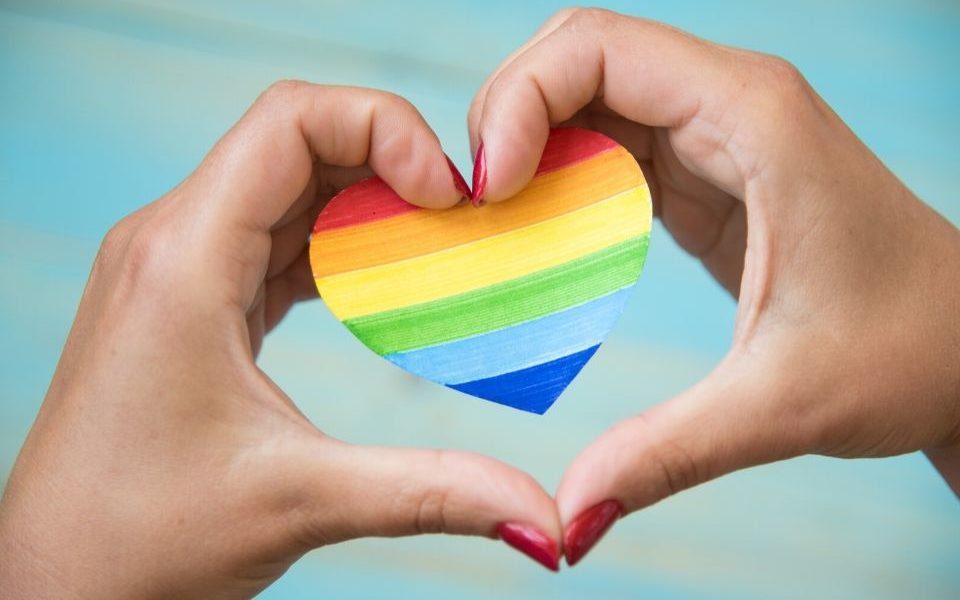What does LGBTQ+ Mean?
“LGBTQ+” stands for lesbian, gay, bisexual, transgender, questioning, or queer. The “+” stands for other sexual identities, including those who identify as non-binary, Two-Spirit, intersex, asexual, pansexual, agender, genderqueer, bigender, gender variant, and pangender.
What is Sexual Orientation?
Sexual orientation is about who you’re attracted to and want to have relationships with. Some types of sexual orientations include gay, lesbian, straight, bisexual, and asexual.
What is Gender Identity?
Gender identity describes our internal understanding and experience of our own personal gender. Every person’s experience with their gender identity is unique and personal. While some people identify with the sex they were assigned at birth (known as cisgender, cisman, or ciswoman), some find that their gender identity differs from their sex at birth.
What is Gender Expression?
Gender expression describes the way that we present ourselves. This may include physical appearance, clothing, hairstyles, and behavior. It is important that we do not assume that the way someone moves, talks, dresses, acts, or behaves is indicative of how they identify their gender.
I have questions about my sexual orientation, gender identity, and/or gender expression. What resources might be helpful?
Remember: no one is an expert on you more than you are. If you have questions about your sexual orientation, gender identity, and/or gender expression, know that you’re not alone. The Trevor Project has excellent resources, including this Coming Out Handbook, with more information.
How Can I Get Access to LGBTQ+ Friendly Services?
There are several organizations in Los Angeles that offer LGBTQ+ youth-friendly services and support groups. The LA LGBT Center, Penny Lane Centers, LGBTQ Center Long Beach, LA Gender Center, Children’s Hospital Los Angeles Center for Transyouth Health and Development, and the Alexis Project are some organizations that offer youth-friendly services.
I feel like I’m all alone and don’t have anyone that understands. What Can I Do?
If you are feeling lost and alone, please reach out to support resources like The Trevor Project, the LA LGBT Center, or Trans Lifeline. If you are in middle school or high school, your school may have a GSA (Gay Straight Alliance) or similar student group, where kids your age, including other LGBTQ+ kids, talk about their experiences and provide support to one another. Even if that club doesn’t have another student that you feel understands you, the club’s advisor may be able to provide that support or identify someone on campus who can be a support person for you.
Can my caregiver (including a foster parent, group parent, transition housing) kick me out because I’m LGBTQ+?
No. You cannot get kicked out of your placement for being LGBTQ+. If you feel like someone is kicking you out for that reason, talk to your lawyer. The Alliance for Children’s Rights and Public Counsel also have attorneys that can help you.
If you feel like you are mistreated or treated differently in your placement for being LGBTQ+, you should tell your court appointed attorney. You can contact your attorney by calling (323) 980-1700. This could include adults not responding when other residents bully you, not using your chosen name and pronouns, preventing you from getting access to LGBTQ+ affirming medical and mental health care, or kicking you out of your placement. In addition, you can consider (or talk to your lawyer about) reporting to:
- The Los Angeles Foster Care Ombudsperson (213-253-0117)
- The California state Foster Care Ombudsperson (877-846-1602)
- Community Care Licensing Division of the California Department of Social Services (844-538-8766)
Complaints made to the Ombudsperson and the Community Care Licensing Division are confidential, and you cannot be threatened or punished for making complaints.
Caregiver & Family Information
I think my child may be LGBTQ+, but they haven’t come out to me. What can I do?
Your support for your child, no matter how they choose to identify, is important. It’s also important to remember that your child may not know how they identify yet, or may not be ready to share. The best thing you can do is show that you love and support them no matter what, and continue educating yourself about how to be caring, open, and supportive.
I’m struggling to understand and support my LGBTQ+ youth. Where can I find support?
There are excellent resources for parents who want to better support and understand their youth. PFLAG (Parents, Friends, and Family of Lesbians and Gays) is generally a great resource and has meetings and chapters all over the country. There are additional resources at the following: Child Welfare Information Gateway; Family Acceptance Project; Gender Spectrum; My Kid is Gay; HRC Parent Guides.

